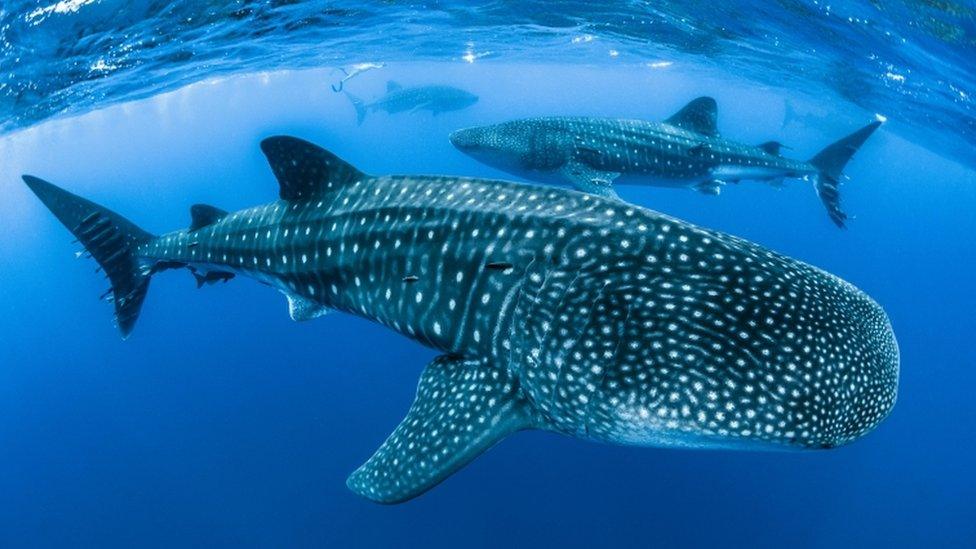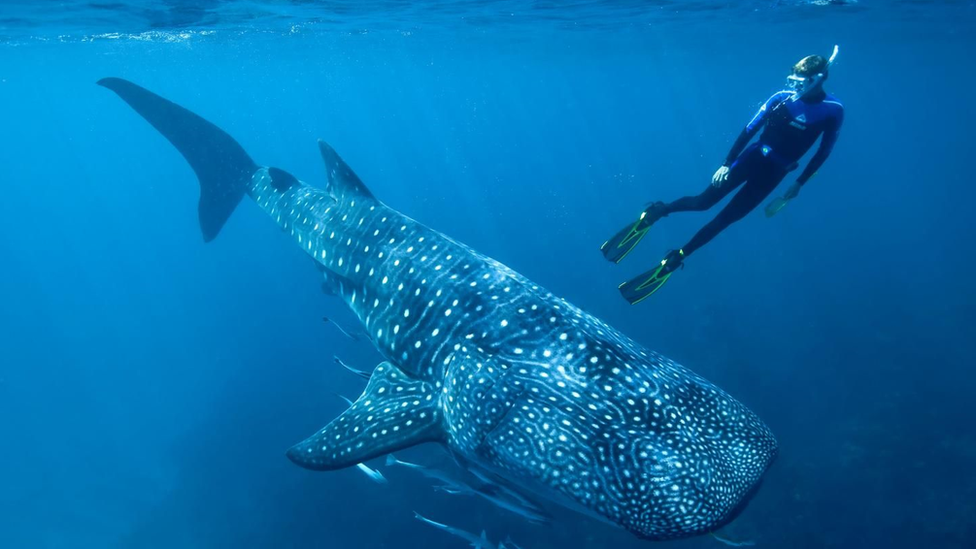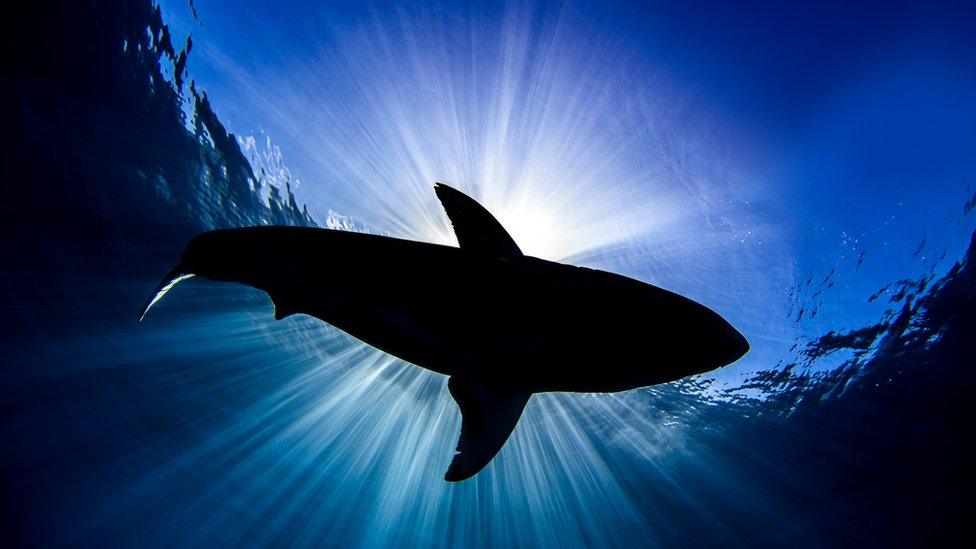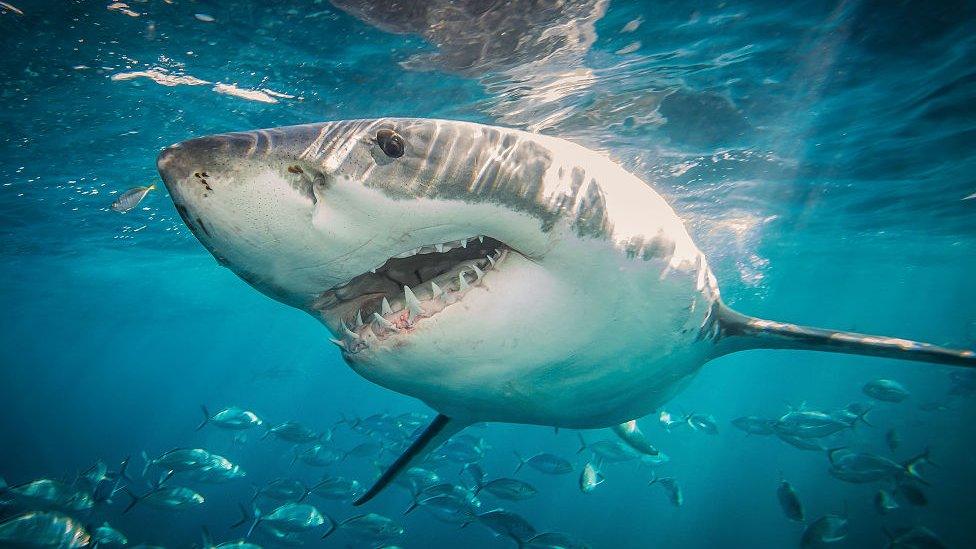Whale sharks: Marine Biological Association study says ships could be causing decline in numbers
- Published
- comments

Whale shark numbers are in decline and now scientists believe ships are to blame.
Populations of the endangered animal have been falling and new research has found that cargo ships and fishing boats could be the cause.
Researchers were concerned that, because the sharks spend a lot of time at the surface of water in coastal areas, they may be being hit by ships.
So a team of researchers from the UK began a study to look into it.
The study

Researchers tracked the movements of whale sharks around the world
Marine biologists from the Marine Biological Association (MBA) and the University of Southampton tracked the movements of both whale sharks and ships across the world to find areas of risk and possible collisions.
They collected satellite-tracked movement data for nearly 350 whale sharks. The team mapped shark hotspots where there were also cargo ships, passenger and fishing vessels - which could injure and cause the death of the whale sharks.
It found that more than 90% of whale sharks movements happened near shipping activity.
The maritime shipping industry that allows us to source a variety of everyday products from all over the world, may be causing the decline of whale sharks, which are a hugely important species in our oceans.

A diver with a whale shark
The team tracked the whale sharks using tag transmissions. According to the results they lost track of the animals more often in busy shipping areas, even when they ruled out any technical errors that could have happened with study.
The researchers from 50 international research institutions and universities concluded that the loss of transmission was likely because whale sharks had been in a collision with a boat or ship.
Whale sharks are slow-moving and they eat microscopic animals called zooplankton. They play an important role in keeping marine life healthy and they regulate the ocean's zooplankton levels.
The research team say that this species could face an uncertain future if action is not taken soon.
They are the largest shark and the biggest fish species alive today
Whale sharks can grow up to 20m long (that's longer than a bowling lane)
They live in tropical oceans all over the world
- Published28 January 2021

- Published23 March 2021

- Published16 May 2022

